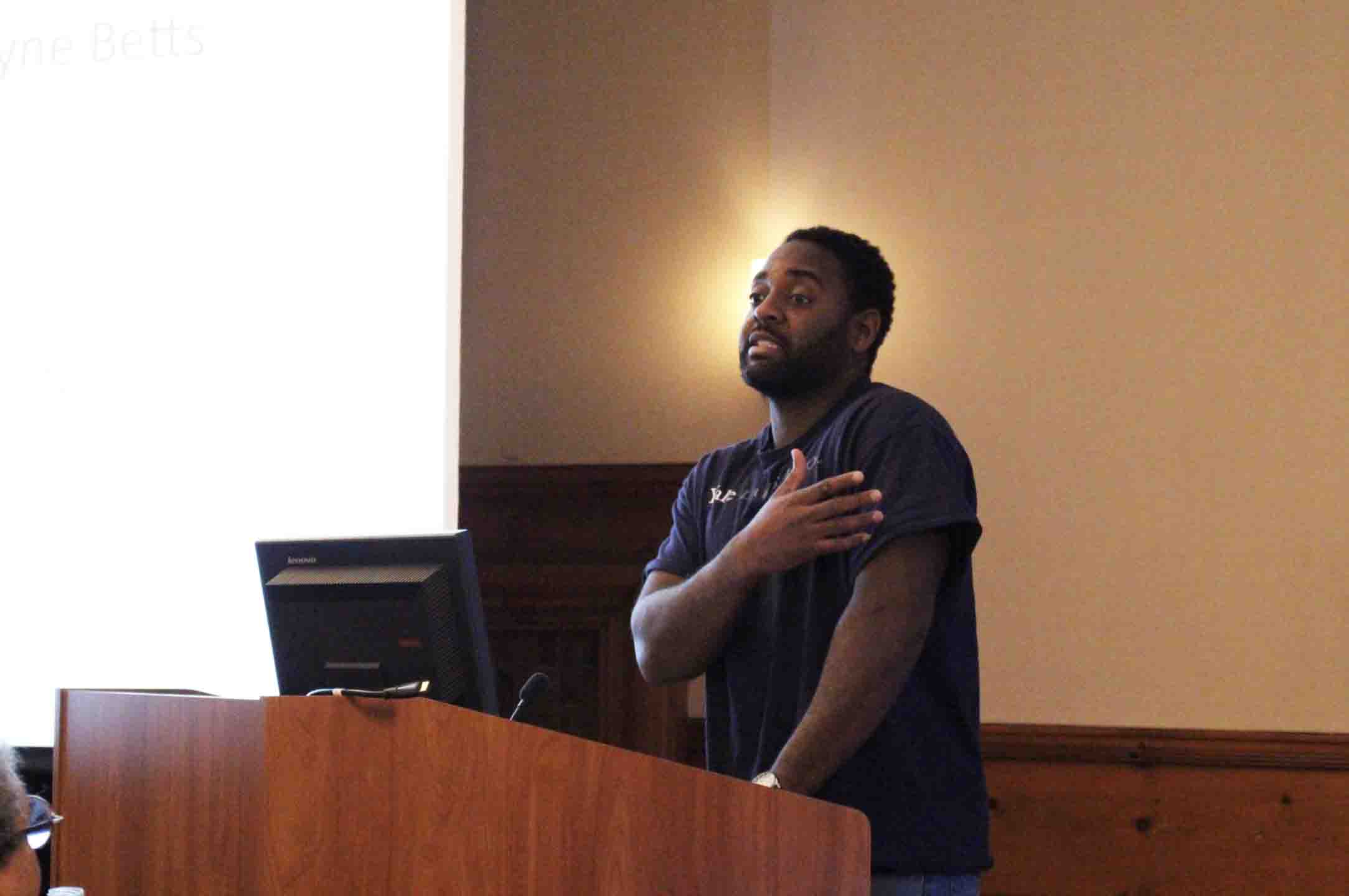
Two decades after he received a nine-year prison sentence at the age of 16, Dwayne Betts LAW ’16 GRD ’23 has finally completed his journey from one end of the criminal justice system to the other.
But it was not an easy journey. The Connecticut Bar Examining Committee initially denied Betts the chance to practice law, despite the fact that he has published two critically acclaimed books, attended a top-tier law school and passed the Connecticut bar exam. The committee needed to hold a separate meeting last Friday to examine his moral character. After the meeting, the committee determined that Betts is indeed fit to practice law, eight months after he passed the bar exam.
Betts’s story has inspired people in similar situations and ignited a national conversation about reintegration. Betts told the News that while he was grateful to be admitted to the bar, he was more thankful for the phone calls and letters of encouragement that he had received from across the country. More than 120,000 people signed a petition on Change.org to call for the state bar to reconsider its initial decision denying Betts’ application based on his past record that it said reflected “a significant deficiency in the honesty, trustworthiness, diligence or reliability” of the candidate.
Professors who taught Betts at Yale Law School applauded the bar’s decision, recalling his unique contribution to classroom discussions.
“Dwayne’s admission to the bar is fairly unremarkable; he’s just a talented person who passed a difficult test,” law professor Noah Messing LAW ’00 wrote in an email to the News. “But although his bar admission is unremarkable, he is anything but ordinary — and almost everyone who knows him expects from him utterly spectacular achievements.”
On Dec. 7, 1996, Betts was charged with six felonies for carjacking a man at gunpoint, which led to eight years in prison. During that time, Betts started writing poetry, a passion that garnered him national recognition.
At Yale Law, Betts worked in the Educational Opportunity and Juvenile Justice Clinic where he once represented a young man who faced school expulsion for a minor disciplinary infraction, according to one of Betts’ law professors, James Forman LAW ’92. Forman added that Betts, whom he called a “regular and eager contributor,” often made the most interesting comment of the day in a class that Forman taught about race and law.
“It was not uncommon to see Dwayne’s intervention change the entire nature of the class conversation, as other students and I felt compelled to respond to his incisive remarks,” Forman said.
For Leif Dautch ’07, who started the Change.org petition, the large number of signatures shows that people are ready to move past the “tough on crime” era to a period in which society deliberates creatively on how to reintegrate people with a criminal history, Dautch said.
Dautch, a deputy attorney general in the California Department of Justice, said he has seen many people who are sucked into the criminal justice system at an early stage in their lives eventually begin to work within the system in a range of capacities, including as lawyers and police officers.
Reflecting on the creation of the petition, Dautch said he was careful not to use language that would pressure the state bar; rather, he said, he hoped to portray Betts for who he is — a person who has turned his life around.
Dautch added that the creation of the petition has also prompted him to think about the language the media uses to label people with criminal records.
“We should not label people by the worst things they have done in their life, hopefully that will be another positive outcome [of this incident],” Dautch said. “Words matter; words have a lot of power.”
Betts passed the bar exam in February.
Jingyi Cui | jingyi.cui@yale.edu







